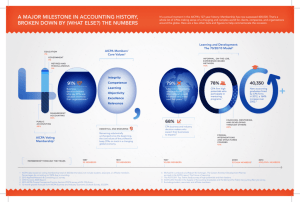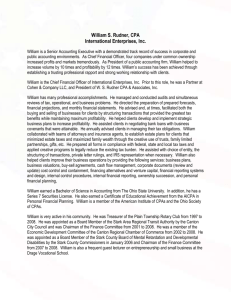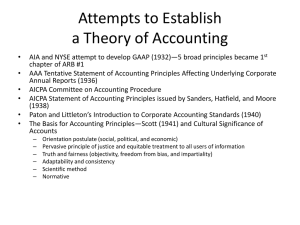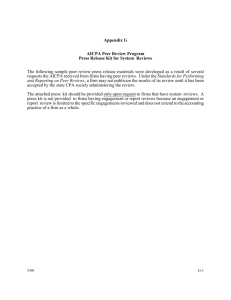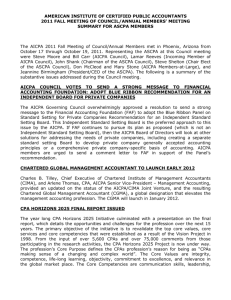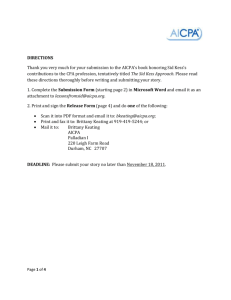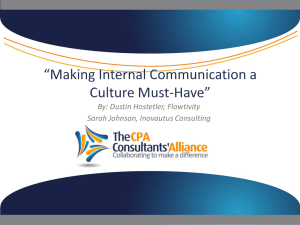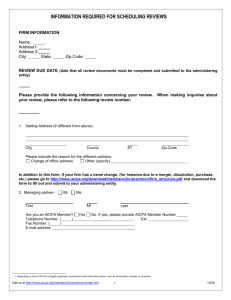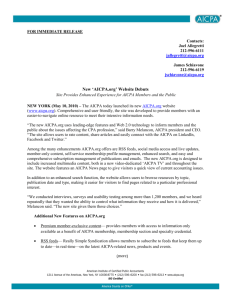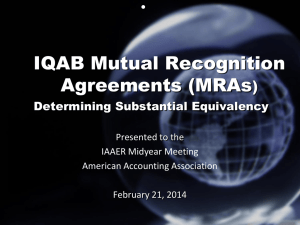Fact sheet for state society press kit use
advertisement
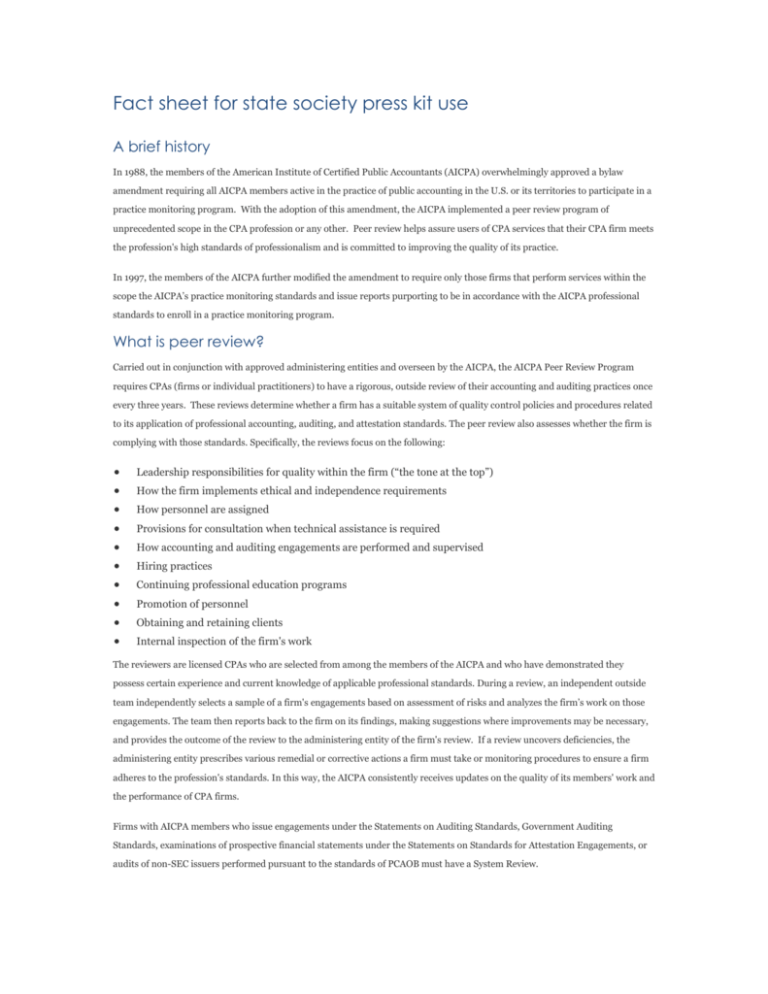
Fact sheet for state society press kit use A brief history In 1988, the members of the American Institute of Certified Public Accountants (AICPA) overwhelmingly approved a bylaw amendment requiring all AICPA members active in the practice of public accounting in the U.S. or its territories to participate in a practice monitoring program. With the adoption of this amendment, the AICPA implemented a peer review program of unprecedented scope in the CPA profession or any other. Peer review helps assure users of CPA services that their CPA firm meets the profession's high standards of professionalism and is committed to improving the quality of its practice. In 1997, the members of the AICPA further modified the amendment to require only those firms that perform services within the scope the AICPA’s practice monitoring standards and issue reports purporting to be in accordance with the AICPA professional standards to enroll in a practice monitoring program. What is peer review? Carried out in conjunction with approved administering entities and overseen by the AICPA, the AICPA Peer Review Program requires CPAs (firms or individual practitioners) to have a rigorous, outside review of their accounting and auditing practices once every three years. These reviews determine whether a firm has a suitable system of quality control policies and procedures related to its application of professional accounting, auditing, and attestation standards. The peer review also assesses whether the firm is complying with those standards. Specifically, the reviews focus on the following: Leadership responsibilities for quality within the firm (“the tone at the top”) How the firm implements ethical and independence requirements How personnel are assigned Provisions for consultation when technical assistance is required How accounting and auditing engagements are performed and supervised Hiring practices Continuing professional education programs Promotion of personnel Obtaining and retaining clients Internal inspection of the firm's work The reviewers are licensed CPAs who are selected from among the members of the AICPA and who have demonstrated they possess certain experience and current knowledge of applicable professional standards. During a review, an independent outside team independently selects a sample of a firm's engagements based on assessment of risks and analyzes the firm’s work on those engagements. The team then reports back to the firm on its findings, making suggestions where improvements may be necessary, and provides the outcome of the review to the administering entity of the firm's review. If a review uncovers deficiencies, the administering entity prescribes various remedial or corrective actions a firm must take or monitoring procedures to ensure a firm adheres to the profession's standards. In this way, the AICPA consistently receives updates on the quality of its members' work and the performance of CPA firms. Firms with AICPA members who issue engagements under the Statements on Auditing Standards, Government Auditing Standards, examinations of prospective financial statements under the Statements on Standards for Attestation Engagements, or audits of non-SEC issuers performed pursuant to the standards of PCAOB must have a System Review. How clients benefit Participation in the AICPA Peer Review Program provides CPAs with the opportunity to learn new or improved ways to operate their firms and improve client services. This may be as simple as identifying possible inefficiencies, or as broad as determining opportunities to better serve clients. Whatever the case, clients benefit because CPA services become more appropriate for client needs and responsive to the changing business environment. What's more, clients can be sure their CPA firm meets the profession's high standards of quality and professionalism. Peer review also keeps CPAs current on the latest standards and trends in accounting and auditing. This translates into more knowledgeable advice for those who rely on CPA services. Peer review offers the assurance your certified public accounting firm is committed to performing at the very highest level. About the AICPA The American Institute of Certified Public Accountants (www.aicpa.org) is the national, professional association of CPAs, with approximately 360,000 members in business and industry, public practice, government, education, student affiliates, and international associates. It sets ethical standards for the profession and U.S. auditing standards for audits of private companies, non-profit organizations, federal, state and local governments. It develops and grades the Uniform CPA Examination. The AICPA maintains offices in New York; Washington, D.C.; Durham, N.C.; Ewing, N.J.; and Lewisville, Texas.
